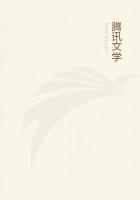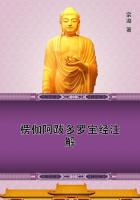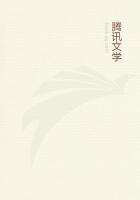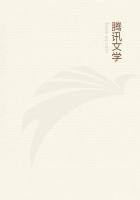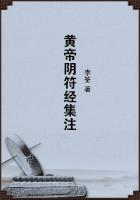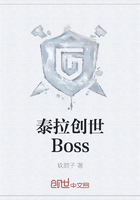/Tommaso de Vio/ (1469-1534), surnamed /Cajetan/[1] from his place of birth, /Gaeta/, joined the Dominicans at an early age, taught at Padua and Pavia, and was elected general of his order (1508). Seven years later he was created cardinal and was entrusted with a mission to Germany (1518), in the course of which he sought vainly to procure the submission of Luther. During the closing years of his life he acted as one of the principal advisers of Clement VII. By his example and his advice he did much to revive theological studies amongst the Dominicans and to recall them to the study of St. Thomas. As a theologian and an exegetist he showed himself to be a man of great ability and judgment sometimes slightly erratic and novel in his theories, while from the point of view of style he was vastly superior to most of his predecessors. His principal works are the Commentary on St. Thomas (1507-22) and his explanations of nearly all the books of the Old and New Testament. /Ambrosius Catharinus/[2] (1487-1553) was born at Siena, graduated a doctor of canon and civil law at the age of sixteen, pleaded as a lawyer in the consistorial court of Leo X., joined the Dominicans at an advanced age, took a prominent part in the discussions at the earlier sessions of the Council of Trent, was appointed bishop in 1546, and died in 1553 when, as it is said, he was on the point of receiving the cardinal's hat. Catharinus was a keen controversialist, but as a theologian he was brilliant rather than solid. His strong leaning towards novelties brought him into conflict with Cajetan and in fact with the whole Dominican Order, the most cherished opinions of which he loved to attack. /Dominic Soto/ (1494-1560) was a student of Alcala and Paris, joined the Dominicans in 1524, taught theology at Salamanca from 1532 till 1545, when he went to the Council of Trent, where his services were invaluable especially on the question of Grace and Justification, acted for a time as confessor to Charles V., and returned finally to his chair at Salamanca. He was the last of the great commentators on the /Sentences/ of Peter Lombard. His principal works were /De Natura et Gratia/, written for the information of the Fathers of Trent and /De Justitia et Jure/ (1556). Another of the distinguished Spanish Dominicans of this period was /Melchior Cano/ (1509-60), who had as his professor at Salamanca Francis of Vittoria. He taught at Alcala and Salamanca, accompanied Soto to the Council of Trent, was appointed bishop but resigned almost immediately, and served for some time as provincial of the Dominicans. His greatest work was the /De Locis Theologicis/ (1563), in which as a kind of introduction to theology he endeavoured to establish scientifically the foundations of theological science. He discusses the ten /loci/ or sources which he enumerates, namely, Scripture, Tradition, the Catholic Church, the Councils, the Fathers, the Roman Church, the Scholastics, Reason, the authority of philosophers, and the authority of historians. His style is ******, concise, and elegant.
/Robert Bellarmine/[3] (1542-1621) was born in Tuscany, joined the Society of Jesus (1560), studied at the /Collegium Romanum/ and at Louvain, where he taught for some time, was recalled to Rome to assume charge of the new chair of controversy in the /Collegium Romanum/, took a prominent part in the preparation of the Clementine edition of the Vulgate, in the /Congregatio de Auxiliis/, and in the trial of Galileo, engaged in controversy with James I. of England in regard to the Catholic Oath, was created cardinal (1599), and appointed Archbishop of Capua (1602). Cardinal Bellarmine was a deeply religious man, severe only with himself, an indefatigable student always anxious to be just to his opponents, and specially gifted as a lecturer and writer. His greatest work was undoubtedly the /Disputationes de controversis Christianae fidei articulis/, in which he displayed a most minute and accurate knowledge of the religious tenets of all the sects of the Reformers. The book created such an enormous sensation in Europe at the time that special lecturers were employed at some of the Protestant universities to undertake its refutation. His commentary on the Psalms, and the Catechi** prepared by him at the request of Clement VIII. also deserve special notice. The last complete edition of his writings was published at Paris in 1870. /Francis Suarez/[4]
(1548-1617) was born at Granada, joined the Society of Jesus in Salamanca (1564) and taught at Valladolid, Rome, Alcala, Salamanca, and Coimbra. Like Bellarmine Suarez was a man of great personal piety, well versed in the writings of the Fathers and in the literature of the Reformers. His works are clear and well arranged but somewhat too diffuse. The last edition (Vives) of his works was published at Paris (1856-61). /John de Lugo/ (1583-1660) was born at Madrid, went to Salamanca to study law, and there joined the Jesuits. He lectured first at Valladolid, and later on at Rome where he attracted crowds of students, and he was created cardinal in 1643. In his works he has covered practically the entire field of dogmatic and moral theology.
The best known are perhaps /De Justitia et Jure/ and his treatises on the Incarnation, the Sacraments, the Eucharist, and the Sacrifice of the Mass. The last edition of his published works was issued at Paris (1868-9). /Dionysius Petavius/[5] (Petau, 1583-1652) was born at Orleans, studied arts and theology at Paris, entered the Society of Jesus (1605), and taught theology at Paris for twenty-two years. He was one of the best known and most respected scholars of his age.

